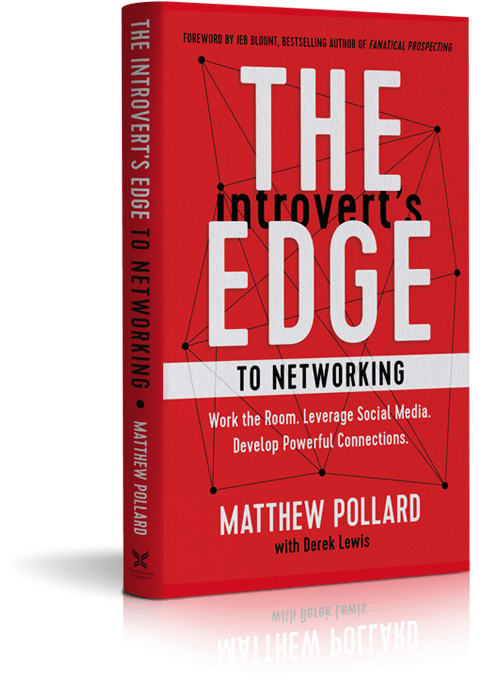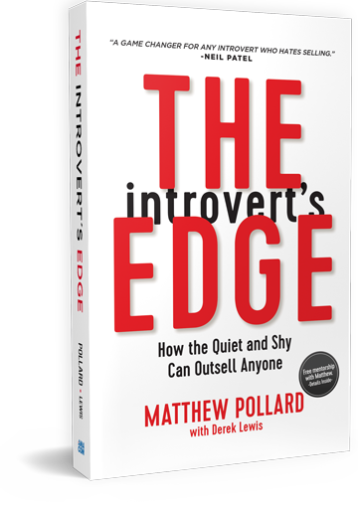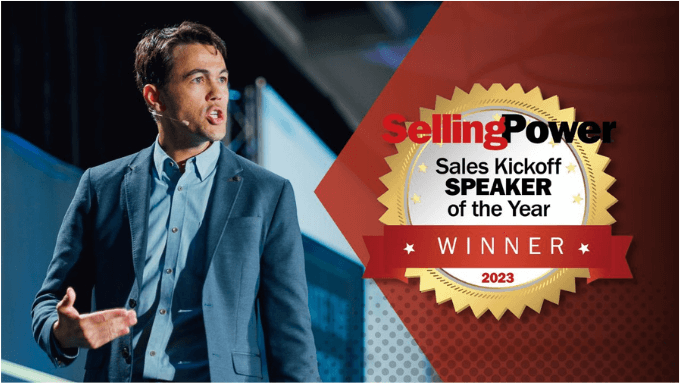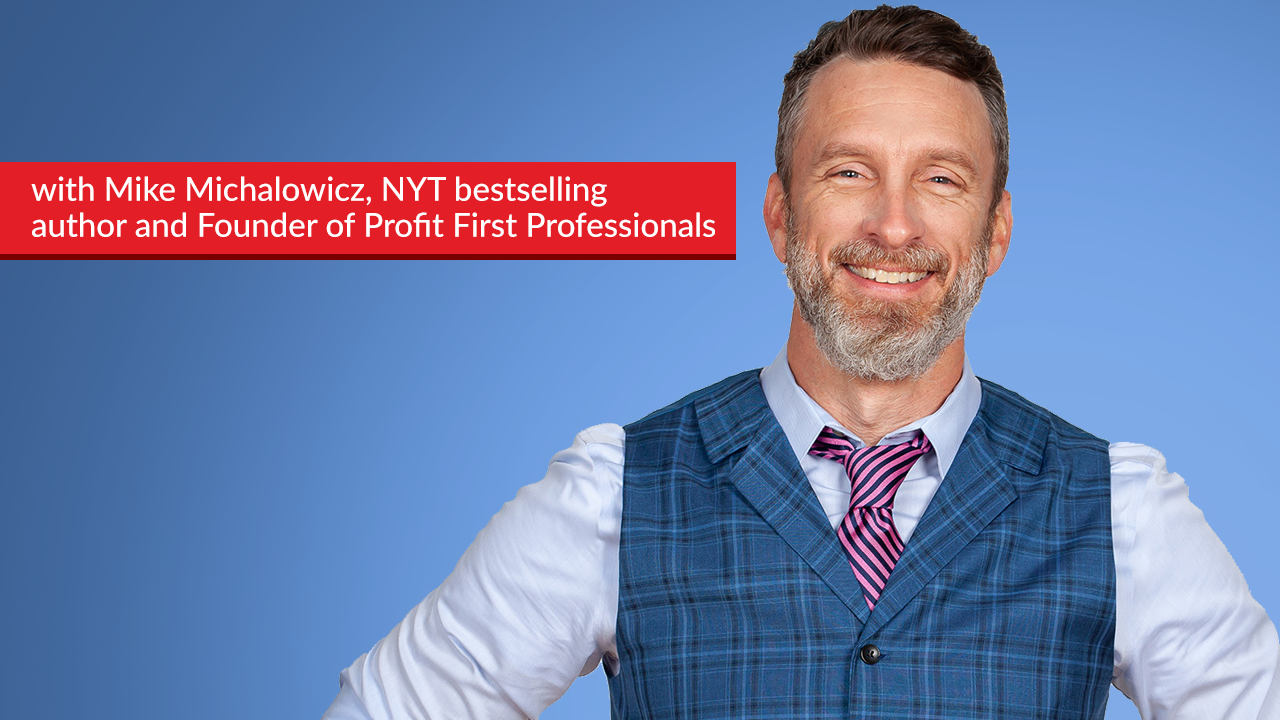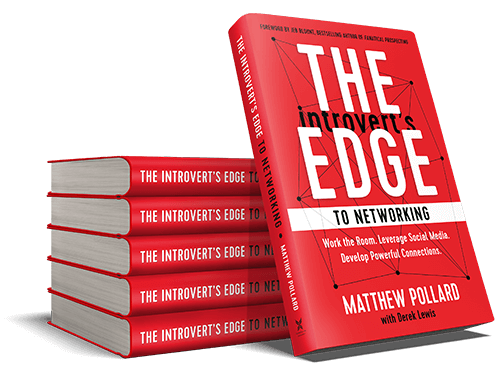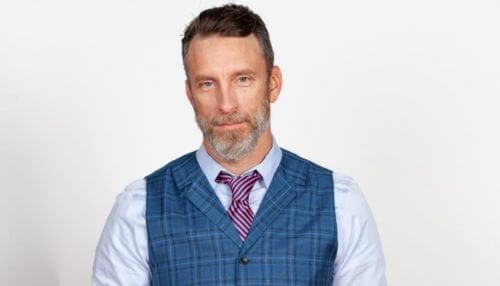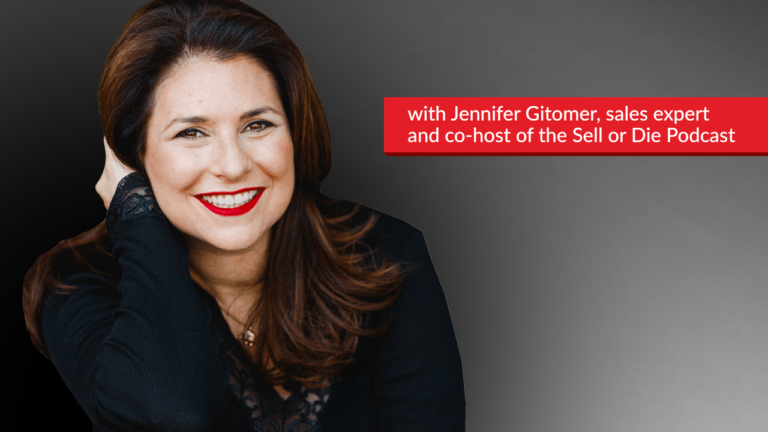Introverts: Be Your Authentic Self!
Matthew: Hello, everyone, and welcome back to the Introverts Edge podcast. I’m actually ecstatic to introduce our next guest, Mike Michalowicz. He’s one of my personal friends and just an amazing person in general, of course, another introvert, and I have to say a successful business owner himself to multi-million dollar successful sales of his own, over a million copies of his magnitude of books sold and 25 languages.
I mean, just an impressive story. It has some ups and downs and nobody ever believes that he’s an introvert, which is exactly what we’re talking about often in the introverts edge, which is why I’m so ecstatic to introduce Mike Michalowicz to welcome to the show. Mike, thanks for coming here.
Mike: It’s good to see you again, brother. How are you?
Matthew: Look, I’m doing terrific. And I’m beyond excited for what I know that you have planned for our audience today. And before we get into that, I mean, a lot of people really struggle to see you as an introvert when they see you speak from stage, when they see you on podcast, that, you know, we were on your show together and you were like, Well, I draw my energy from being by myself.
Sure, I can do these so-called extroverted arena things, but I draw my energy from being by myself. So just so that people don’t delude themselves into hearing you speaking, going, This guy is definitely an extrovert. I’d love for you to share a little bit about your kind of your story, maybe some humble upbringings around, you know, your energy levels and and kind of how you got to where you are today.
Mike: Yeah. Yeah. You know, I think I confused originally the definition of introvert and extrovert. That extrovert meant energy, that it meant authority, that it meant exposure. And I learned those are not all components of introversion. There are extroverts who are low energy. There are introverts that are high energy. I didn’t compute that. And I am an introvert now.
It’s it’s a spectrum, right? I’m toward the ambivert level. But how I define introversion versus extroversion is the source of energy that this is coming up in a couple of weeks. A friend of my wife, they’re having a party and there’s about 20 couples going over and it’s like the quick coin test. You flip a coin and it lands heads, right?
Yes or no? Instant reaction. The second she told me, hey, we’re getting together with these other couples, I’m like, Oh, that little instant is like, okay, that’s a confirmation that I’m introvert, that it will it will be very deliberate for me to actively participate. It’ll be hard for me to to keep up the energy. I’ll be coming on my wife.
Hey, it’s time to roll out of here now. Now, the funny thing is, I know every single couple that’s going. I’m friends with them all. And if my wife said, Hey, we’re going to ask one of the couple for dinner, I’m like, Oh, yeah, But it’s this group dynamic that that drains me. Conversely, in small social situations where it’s just one of a couple or one by myself, my energy elevates.
Now that simply means that I look to expose myself in ways that increase increase my energy for that, that sense of closeness, intimacy and exclusivity just by myself. What I found is you can apply that as an author and it comes out in different roles than the ways that still drive authority in the traditional sense.
Can You Feel Authentic Speaking Onstage?
Going on stage is a very intimate experience for me.
Yeah, there could be hundreds. I’ve been very fortunate sometimes have thousands in the audience, but I’m not having to socially network with each person. How are you doing and tell me your story and let’s get going. I put my story out on out there. It’s actually a very lonely is not the right word, but is a very exclusive experience.
This is me on stage talking to faces and hopefully engaging in stuff. Writing. I was just writing this morning. I love that just sitting there and letting thoughts flow and stuff and it feels so fulfilling. The other thing is, is regards to energy and I have been clinically and say clinically. I have two psychologists, my family and they both separately diagnosed me to be hypomania.
Hypomania is a tendency and I wonder if you have it too, Matthew It’s where we have this high energy level almost that we get to kind of burn it off. So the second I wake up, my gets go time and I just keep on going and going. But it doesn’t mean that I need to be as sure as I mean, indeed with other people.
It’s just an energy that’s internal. And when I’m alone, when I’m in a small group, I can channel, it’s much more effective. And maybe that’s the essence of introversion. It’s the channeling of what my natural talents are, are best expressed in small, intimate groups, and it becomes kind of muddled in larger groups.
The Power of Passion
Matthew: You know, I think that’s really interesting because one of the things I talk about in my books is that if an introvert is talking about what they’re truly passionate about, they get energized and they want to be out networking. They want to be speaking from stage. They they want to do everything. Now, that doesn’t mean that they potentially can do it well, but they’ll be energetic about it once they learn the strategies, which I know you share in your books as well, all of a sudden they can do it well and still be energized, but that doesn’t mean they’re not exhausted afterwards.
And I know you talk about this in in one of your trainings on introvert, you where you kind of talk about that on stage experience where you are, you’re actually energized by that. And I think a lot of introverts would struggle with that kind of concept because, I mean, surely speaking from stage is terrifying, but for you, you get energized by that activity.
So I’d love for you to share why you think that is, because this is a so called extroverted arena that everyone assumes that if you’re up on stage, you must be extroverted. And I know you say in the training that so many people, you know, that are amazing speakers actually happen to be more on the introverted side.
Mike: And I would say most are introverts. And I think the reason introverts are more successful on stage is because we can go deeper into ourselves instead of constantly trying to be the king of the party or the queen, the party, or looking internally, we can express on stage very well, and that forms intimacy and connection. So that’s why I found for or for most speakers now we all get stage fright.
Like I still get a little bit of I’ve, I don’t know how many times I’ve been stage, maybe over a thousand times now. I’ve done for well over a decade, almost two decades now and often and every time for me on stage, I still get the butterflies, I still get nervous, I still have that little bit of stage fright.
But that is not introversion extroversion. That’s called just being pure human. Like you’re about to go in front of a lot of people. So thoughts race your mind, like, am I going to do this right? Am I going to mess up? But once I get into flow, I actually look internally. It’s like, how do I bring out the most of me?
It’s like a one person player, one person performance. Now, just in context, I’ve been blessed to be on stage with some of the biggest names in the space, people in leadership positions, though leaders, introverted business leaders. So, you know, my books are all business books. So Guy Kawasaki comes to mind, or Michael Gerber or Seth Godin or Dave Ramsey are all people that I’ve been at those events and share the stage with them.
And most of those people, high degree introverts, introverts extremely effective and energized presenters.
Do Our Personalities Change over Time?
Matthew: Interesting. And I know you and I talk openly about ambiversion, introversion, extroversion, and it’s really interesting when I speak it at a lot of events, I’ll get people to fill out a survey about whether they’re introverted or extroverted. And quite frequently I hear things like, Oh, I used to be extroverted, but due to the pandemic I find myself being more introverted or like, that’s possible.
And then, you know, during, you know, obviously I used to be really introverted, but don’t worry, I’m extroverted. Now, again, that’s possible because there seems to be this situation where people almost feel like they’re embarrassed to say that they’re introvert. And that’s why I’m I’m trying to combat that as much as possible. But what I find is and you know, I think that there’s this this line where extroverts potentially aren’t the best listeners, they’re not the most empathetic, but they can learn those strategies.
Introverts, for example on the other hand, can learn to speak, learn to network, perfect their marketing efforts, build a personal brand and master personal branding, harness their natural leadership gifts. You know, most people have equated leadership with extroversion, but introverts and extroverts alike can be amazing leaders.
And what happens is everyone starts to move with training and education and coaching to this middle path, which we’re open to now. Calling it ambiversion. So I’m really interested to hear what your thoughts are from a growing up perspective. Did you find that you were a lot more more quiet growing up?
Did you find that there were some things that you struggled with that you had to spend some work really learning to to to change yourself, to to become who you are today?
Mike: Yeah, there’s different skills. You know, it’s funny, when looking back at my early days, I don’t remember much as all stories my mother. But I’ve observed my own son. My youngest son grew up and he had what’s called selective autism. Selective autism. This isn’t naturally point to introversion or extroversion, but what it is, is a fear to be exposed publicly or engaged publicly with in any format.
So as a young child, if a stranger came up, I said, Oh, what’s your son’s name? He’d hide behind my wife’s leg and be sitting there. And he was diagnosed with selective autism. And what the instructor or the clinician suggested is when a stranger comes up, you’ve got to invoke play. So invite people, Hey, come up to tickle him and play around too.
Sorry, expanding him. Well, fast forward, he’s now 20 years old. He shows up and he can engage, but he actually I think my whole family are introverts. He is an introvert, but he’s how engaged, how he presentable and so forth myself. You know, when I started my speaking career, I knew that I was becoming an author and that I needed to speak it also.
And I and I wanted to be an extraordinary speaker. There was no question about it. But I knew I had to kind of cut my teeth on this. So I started speaking my church, and what I did is I went to the pastor of our church and said, Hey, do you want someone to do the the reading from the Bible?
And no one was volunteering for it. We have a very small community church and like no one would volunteer for it, so I’ll do it. And he said, okay, that’ll be great. And then I said, I’ll do it again. I did it over and over again, and I learned I didn’t. I remember the first reading I did. I didn’t read the verse.
And it’s like, Oh, you can just read it. I didn’t know how to pronounce biblical names like Jehovah’s, I What? So I started to learn, and I remember the very first time when my face went beet red and I was like, shaking. I got it out and somewhere someone after me came up to me to say, Good job being up there.
And it’s hard to give me some confidence. I think no matter who we are, the introversion extroversion is just our orientation. We have to build the skill. I’ve seen extroverts who go up and they’re just as horrible. We think of them as a charismatic leader, great speaker, you know. The first go around are doing that presentation or or doing that reading. So the skills can be developed by anyone. It’s just we have a certain orientation, but that doesn’t affect our ability to perform as long as you practice over and over again.
Matthew: That’s terrific and thanks for sharing that, Mike, because I know a lot of people are terrified of getting on stage and sometimes it’s just really important for people like us to say us too, and it’s okay. And I’m really glad. I’m really glad that you shared that. I think one of the other things that introverts are always focused on, and I talk about it in my books all the time about being authentic and greatly yourself.
And I think that one of the things that your story really kind of elucidates is that you can be authentic, even if your life’s kind of been a bit of a rollercoaster. I mean, you talk openly about the fact that, I mean, to multimillion dollar sales is huge, but then you had a bit of a hiccup and then you had to get up on stage and still speak from a point of authenticity and comfort.
How well do you want to share a little bit about what that hiccup was and how you kind of had to rebuild yourself from a mental perspective?
Mike: Yeah, and I would argue it’s an necessity to expose hard. Our challenges that we face in real life sometimes are hiccups. So mine was more than a hiccup. It was just a pure disaster brought upon myself by myself. So I sold some companies early on. I’m a self-made millionaire in my early thirties. I got all figured out. I think my ego was massive.
I’m like, Oh, I’m a genius. Well, I started a third business that I had no understanding for what I was doing. I was an angel investor and it just it was a cool term and that’s why I did it. I went in with pure ignorance and so I started all these businesses. I invest in all these startup companies, and they all failed.
Not because all the people I was investing in or the idea they’re investing in were bad. I was clueless and they weren’t complimentary. I was like, Oh, there’s good ideas. Pot shots. Well, within six months I wiped out everything. It wasn’t just these investments. I blew it on arrogance, too. I wanted to have the fastest car. I wanted to have a place out in Hawaii.
I went all the things and I had to come home and face my family and tell them that we’re going to lose our house. We lost it 30 days after I hit rock bottom financially. And then my daughter, she was nine. She felt compelled to save me by presenting her piggybank. She said, Daddy, since you can’t provide for the family, I will.
It was like a dagger to my heart. That story, though, that that moment became a ceiling for change for me. And it’s so critical that we share this.
Building Connections
There’s a concept called the pratfall effect and what this research shows is that when someone in a position of prestige or celebrity ship some mistakes and shows their human side, they actually become more desirable.
We feel more compelled to engage with them. So when you see that blooper reel at the end of the movie, it’s like, Oh my gosh, I’m falling. Love these real people, because they’re real humans. Well, we all have this responsibility. If we show that perfect self, that perfect presence on social media. Here’s yet another amazing meal. Here’s another amazing day in Sunset.
It actually disassociated the people from us. If we show some of the real ugliness, we actually become more palatable because we’re showing the pratfall effect.
Matthew: That that’s really great advice. And look, I know you’ve gone on to charge. I mean, you’re up to 30,000. I think you talk about in speaker fees and yeah, you’re constantly coaching and you work especially through profit. First is getting implemented into, you know, hundreds of thousands of businesses. Just unbelievable. But you had to really pull yourself up and say, firstly, I’m willing to be open and honest about the fact that my my successes are great, but I had some pretty significant things that happened that are perhaps negative that other people may judge me on.
But it’s okay because my willingness to be honest is my also my ability to help others. And I think this is really critical for introverts that are listening because a lot of introverts want to shield themselves from external judgment and they want to have present the best version of themselves, which leads to that perfection mentality on social media and speaking from stage, which is why none of that ever seems to happen.
So help me understand, because I know that you had to you went through some some depression when this all happened and then you had to rebuild yourself. What advice would you give people that have had these negative situations or just can’t seem to get themselves to take that step forward to really trust in themselves? And that, yeah, being vulnerable is actually going to lead to positive, not negative feedback?
Mike: Yeah, I would sort of by saying that we’re all judging all everyone around us all the time, you’re judging me, I’m judging you. And this is not a negative thing. But the second we see each other, judgment comes about, Oh, I like the shirt or I don’t like the shirt. Oh, here, the style. Well, it’s always going on.
It’s just the human experience. So there is no avoiding judgment. It’s necessary for the human experience. So then to carve out certain spots and hide it, you’re still being judged. The interesting thing is when we reveal something that is can be ugly or or is difficult or puts us in a position that that kind of lowers our value of our standard.
If that’s the right choice of words, we become more compelling.
The Phoenix Effect
There’s this concept I call the Phoenix Effect, but if you watch a movie like with like a Tom Cruise or something like that, these action movies will start off always the same way, the opening scene. Everything’s perfect. You know, he’s Tom Cruise walking on the beach. He looks amazing.
His wife looks amazing, his children look amazing. The beach, the dogs are amazing. That’s the opening scene. The problem is that’s what we’re seeing. So show me if you only did that, if everything was amazing, a certain point like, oh, that’s not me. It’s not what? I’ll never have it. Tom Cruise sucks. So the movie will do it in 5 minutes is I’ll go into this me collapse wife is murdered by some long distance sniper.
You know, some kidnappers come up and they take the kids. They beat the crap out of Tom Cruise and the lowest part of that scene will be Tom Cruise lying on the ground, blood coming out his mouth. The ocean wave kind of washes it out and they fade to black. They’re showing the arc of what his life was like and the reality they’re showing the beauty and the ugliness.
Then the rest of the movie is the revenge or the avenging, the death of his wife. He’s recovering his children. We’re now along for the ride because, like, he’s good. He had a great life. His life is way worse than I’ve ever experienced. So therefore, somewhere in between he was like me or he is like me. Therefore I’m a champion for him.
So we have a responsibility to show the greatness not in a braggadocious way, but in a visionary way. You know, I’m very public about my core mission, to eradicate poverty. That’s why I honestly believe I’ve been put on this planet, is to serve other entrepreneurs and have grand vision for how many people will serve. And a grand expectation for myself.
I put that out there and I show the blood coming out of the mouth and the ocean wave over me because it’s it’s true. And the reality. And I also know somewhere between those the vision and the reality of struggles I’ve had that someone says, Oh, this guy is like me, I get it. And now they’re along for the journey.
We all have this, and so it’s necessary to point to that and then engage our audience to come along with us on the journey so that we can serve them.
Matthew: Absolutely. I think it’s it’s so critical. You know, one of the things that I do in my presentations is I put this photo up and it took me a lot of time to get confident enough to do this. I put this photo up at my sister’s wedding and it’s me with terrible acne, and I talk about my discomfort and I now make a joke beforehand.
I say, I’m going to show you this life for 3 seconds. No kidding. 3 seconds. I switch it on, I switch it off. People laugh and I move on. And that for me was horrifying the first time I did it. And then I realized that by bringing myself down a peg, it’s the only way I can get other people to rise with me.
And it’s so, so critical to what we do. And I you know, I know we’ve got an interview coming up together on the quietly influential summit, and I really want to go into detail on I mean, you had this issue where you lost everything and had to come back, but you started speaking at that time where you were like, whoa, here I am, and I’ve now got you.
Come watch me as I rise almost where I know a lot of people, like, Will I come from nothing or I’ve had these things that have gone wrong. You know how do I get up on stage and speak from authority? So I’m really interested in talking more about that. But what I think for today, I’m really interested. I mean, your new book is called Get Different, and I think for introverts, being different is scary.
And you talk about differentiation, attraction and, you know, making sure that you connect with people. And I really believe that a lot of those chinks in the armor is how we do that. I’d love for you to share a little bit about the book, how you think that the concept may may help the introverted audience, but also how their introversion may play towards or against them applying those strategies.
Get Different
Mike: Yeah, I think it serves a, you know, the long title could have been Be Yourself because it is different, you know, Do you Because the others don’t do you And you’ll stand out those are other alternative titles and you’ll see over my shoulder here, my left shoulder says be yourself. The essence of what does authenticity in business really mean of distinguish ourselves is not to change who we are.
It’s actually to comply with who we naturally are because no one else is like you. It was Oscar Wilde. He said, Be yourself. Everyone else is really taken away. See in business means all markets. The speaker industry too, is that we we very quickly all kind of dilute ourselves to the common standard is how presenters present tell a story, then back up with a message, then tell another story, back it up with another formula.
You know, tell them we’re going to tell them. Tell them, tell them what you told them. And we go into this format approach. We say, that’s that’s the standard. Therefore, I need to be that. But at the same time, it’s not truly who we are. There’s something as off kilter and humans are really good at sensing this. We all know when something or someone is a phony, but not like, Oh my God, that’s so fake.
Just a little. This is a little off. It’s is or I’ve heard this before or the fact is all of us have a distinct differentiation of ourselves if we really lean into it. One of my favorite introverts of all time on the stage is Brené Brown, like the authority on introversion. And look at the audience. She’s commanding. I remember watching her Ted or Ted speech where she said she did this presentation and she called her friends and I don’t know, I’m going to do here.
100 people are going to see this and I don’t know how to deal with it. And the next morning she goes on there and it was 100, 100,000, and she was ready to figuratively kill herself. She was overwhelmed. And look at what she’s done and look at the positivity she’s brought to the world and the engagement of people because she was staying true to herself.
If you watch Brené Brown out there the whole time, you’re like, That’s Brene Brown. You read her book, That’s Brene, and it’s her style. There’s no one else in the world like her. And what she simply did was double down herself. I invite everyone is to double down herself, be more of you. I’ll give one final story, not on the stage of speaking, but on the stage of sales.
I was working with a bookkeeper who said, I love numbers so much, but I showed no emotion. I have a very flat affect. I know. I suppose to get charged up on a phone call and say, We’ve got this in order to get your numbers going. She’s But it’s so hard for me to do that because that’s not who I am.
So I said, okay, to get different, we’re going to see more of you. What character, what kind of public character are you most like? She’s like, I’m Spock. She is. I’m so logical. We said that. That’s your angle. She started every time before she started phone call. She’d say, Before we go into your numbers and before I tell you about my services, I just want you to know I’m like, Mrs. Spock, I love the number so much that I will have a flat effect.
You won’t feel emotion. It’s me just processing numbers. But I will find the answers to your business’s needs here. So I hope it’s okay. I’m Mrs. Spock. Her conversion rate. I think it more than tripled just by framing people to her natural true self, by being more of herself, by leaning into it. People say, Oh, she’s not disengaged, she isn’t bored.
She is so engaged. There’s need that framing. I think that’s not an opportunity for all of us to be more of ourselves. That is how we differentiate and to put a label to it. So people say, Oh, I get you, I get why you’re different and how serve me.
Matthew: Absolutely. And I think that this is critical for a lot of introverts because, you know, it’s funny, I speak at a lot of accounting events, a lot of people in it, and they’re always like, there’s nothing different about me. I’m exactly like everybody else. And the truth is they’re not. They’ve got their life experiences, different upbringings, different past customers that qualify them to help a demographic of different people out, but also qualified them to help them in a unique way because they’re different.
And I think that what commonly happens is we join these association groups, which are great for learning how to systemize our business, but you can’t do your marketing and your sales exactly the way everybody else does it. Otherwise you’re a commodity and you’re going to constantly have to barter on price and quality. So it’s your uniqueness that you don’t talk about in those groups that make you different.
I mean, let’s be honest, Mike and I are friends, but we also have books that talk about a lot of similar stuff. They kind of overlap like my introverts edge to networking teaches introverts how to be different in the networking room, right?
Mike: Right.
Matthew: Twitter Invite Mike to be on this podcast and talk about getting different because the answer is we are different and we know that my advice will help a certain demographic and Mike’s will help a certain demographic, and sometimes you’ll need to hear it from both of us. And one of you will read my book first and then resonate with Mike, and then some of you will read my book and resonate with me.
What you’ll find that’s interesting is both of them focus on planning and preparation. Prepare your difference to make sure that you’re not being different in an unprepared way. When you’re in a networking room, when you when you when when you from stage so that you don’t see it as a chink but an advantage in what you do to serve your business and your ideal prospects authentic people that will not listen to anyone else. Preparation applies to anything you want to do, whether it’s speaking, networking, leading, serving introverted leaders, whatever calls to you.
Which is why, you know, I can’t recommend Mike’s books enough. Now, Mike, I want to give everyone an opportunity to discover you and your work. But before we get to that, I have to ask you the question I always ask on the Introverts Edge podcast. What do you consider your introverts edge.
Mike’s Introvert-Focused Approach to Business lead and Speaking
Mike: I love doing research, but around specific stuff. When I find something complex, it overwhelms me. Actually, I feel an anxiety around it. I love to find the simple solution to complex things, and that’s become the essence of all my work. How do they make always accounting documents and stuff that make me want to go crazy? How do I bring to the essence of what drives profitability?
How do I do all the things that my business needs for me to make my business run automatic? And how do I boil it down to one step to make my business start running on automatic itself? So that’s my introverts edge. I can make the complex simple.
Matthew: That’s that’s terrific. And I think from a lot of introverts that are probably listening, making the complex simple is something that we have to do a lot of times for the people that aren’t so inwardly focused to understand what they need to understand to implement the advice, we’re giving them, all the reports that we’re giving them. So that’s tremendous advice and I appreciate you sharing.
And you know, Mike, I know you’ve got an amazing new training that that you developed for introvert. You and I’d love for you to spend a second just talking about that. But I’d also love for people to, you know, to to know a little bit more about where they can find your way. You’d suggest they start because there is a world of Mike McCullough.
It’s not a single place. Where would you direct them to start their journey in finding out more about you?
Mike: Yeah. So the starting spot is go get different. So it’s the work. Go, go and then get different dot com. There’s resources for the book. There’s I think we now have 70 or 80 ways to start a little different experiments that amplify who you are. You don’t even need the book to get started so you can get started immediately on getting noticed by getting noticed in a way that’s coherent with who you are, and then with the university, I was so pumped to teach it because there’s certain, I think, hacks to getting started as a speaker specifically that very few people know or do.
I discovered because I was uncomfortable following the traditional path. Right? This is part of marketing different every important air quadrants. But every speaker said, Oh, you need an agent or you need to solicit different entrepreneur organizations. Can you speak to I’m like, This feels icky and doesn’t feel consistent with me. But I found there’s a way to speak through colleges and I was blown away.
Was that with no book, no experience speaking, I could get paid gigs, which for me were pretty substantial 2000, 3000, sometimes $5,000 from Miss University for an hour presentation. I can get PR where a university like Harvard edu is back linking to my site and talking about my presentation topic. I could when I had books, get books into circulation with that university.
So my books are taught at actually made my books are taught at Pepperdine. I have one taught in Columbia and all because of this process. So in the training I intimate the exact steps. This isn’t like theoretical stuff. This is the exact step. Call this person given this script, ask them for this. That will stage you to start your speaking career, particularly if you’re an introvert.
Matthew: You know, I thank you so much for sharing that. And I have to tell you, I asked Mike to do this not long ago, actually, and he was he was like, Yeah, sure, I’m happy to. And I went, I’m like, Mike’s probably going to find it in, you know, he’s such a big name. This video series. I took a ton of notes.
I actually have them here. I took a ton of notes because I’m like, Oh my gosh, why didn’t I do this? When I first started, I spoke for free. I had to reach out to people. So uncomfortable. I’m like, I didn’t know it back then, right? So I would really recommend people check that out at the introvert dot com sorry, introvert dot com, I should say, and make sure I mean there’s this cheat sheet for how to do it and it is crazy how simple it is.
And I’m like, Anyway, if you ever want to be a speaker or if you ever want to get noticed, then being a speaker is definitely something that you should definitely do and you can be prepared. There’s lots of things that you can do to be ready to be on stage, but if no one invites you, it’s kind of hot.
So this is really cool skill set to be able to do that. But that being said, well, of course, I want you to check out his program on Introvert. You. I would love you to check out his book because his book is it will be transformative in your lives. So of course, you know, I’d be happy to see you go over to that program.
But I want you to invest in this book because I really feel that it’s going to allow you to introduce your difference in a way that’s comfortable, congruent and will feel authentic to you in a way that may not have occurred to you up until now. Because as we know, introverts, it’s not going to come to us instantly. It takes planning and preparation, which does introverts a terrific ad.
So make sure you check out Mike’s presentation on the quietly influential Summit. You can check that out at the quietly influential summit dot com and then make sure you check out his book. And what was that link again Mike.
Mike: Go get different dot com.
Matthew: Perfect. Thank you everyone and we look forward to seeing you in the next version of the Introverts Edge podcast. Cheers everyone.







